Writers Read: Writing Books by Laura Howard
The bookshelf pictured on the left? It’s just one of my bookshelves dedicated to writing books. On the other side of my office, I have a whole shelf of new writing books to read. And, thanks to Laura Howard’s great post today, I’ll be adding a few more titles to my “books to buy” list. With National Novel Writing Month fast approaching, these titles from Laura should give you the push you need to get yourself OVER the fear and into the PLANNING and PLOTTING stage! Happy reading and writing!
Writers Read: Books for Writers by Laura Howard
There are so many books available right now for authors on every imaginable aspect of writing and publishing. I own quite a selection of them, but these are the ones that I’ve taken the most from so far. There are some on structure and some on craft, but the bottom line is that to write a good story, you have to keep at it and practice.
Outlining Your Novel by KM Weiland introduces a variety of ways to take your book to the next level. Not only does she get the perspective from over a dozen authors, she also uses her own experience to showcase the benefits of having a clear plan in place when honing your craft. Some writers are afraid of losing their passion to outlining, but there is more than one way to outline, and there is bound to be a method here that works for even the biggest pantser.
Story Engineering by Larry Brooks is essentially a set of six “core concepts” which are concept, character, theme, story structure, writing voice, and scene execution. Some of these things will come out naturally while you’re writing your first draft, but others need to be learned and mastered. This book presents the concepts through repetition, which drills them into your head so that they come naturally as you revise and rework your writing.
Writing the Breakout Novel by Donald Maass is a book written by one of THE top agents in the publishing industry, so obviously he has a handle on what might sell and what won’t. He’s spent over two decades analyzing what trends and fads have in common and why some books fly off the shelf and others languish. He gives a lot of tips about how to make a reader care about your characters through psychology and symbolism. The exercises REALLY made me think and work hard. I think anything that makes you look at characters from fresh angles is helpful, and this is a must read for anyone who not only wants to get published, but wants to have a career as an author.
Wired for Story by Lisa Cron. If you are looking for a writing book on how to write pretty prose and proper sentence structure, I suggest skipping this one. But, if you want to get into the nitty-gritty on why people react physically to books and story-telling in general, this is a phenomenal handbook. While Writing the Breakout Novel talks about this to a degree, this book really hammers home what triggers our brains and even our bodies to become addicted to a story. I can’t imagine a writer who doesn’t want that. As an example—why did Fifty Shades of Grey turn into the blockbuster of 2012 even though some would argue it’s not “well-written”? It’s all about the characters and how they make us as human beings feel.
Writing Fiction for Dummies by Randy Ingermason was the first book I read on writing. I wrote my first novel using Randy’s “snowflake method” which is essentially starting with the seed of an idea and adding layers and designing the finished product like one might sculpt a statue. Randy really rids first-time authors of the idea that they can just sit down and write a manuscript and be done. It is through this book that I learned about the three-act structure of novel-writing and he gives some fabulous examples of the inciting incidents of some popular novels. I find the “deconstructing of novels that work” approach to be very beneficial as a writer.
Your turn: What writing book has helped you craft better fiction or nonfiction?
![]() About the author. Laura Howard blogs at Finding Bliss, a community for women on the path to becoming published authors. The site features information and interviews with top experts on writing, editing, marketing and publishing. She is currently revising her first contemporary fantasy novel.
About the author. Laura Howard blogs at Finding Bliss, a community for women on the path to becoming published authors. The site features information and interviews with top experts on writing, editing, marketing and publishing. She is currently revising her first contemporary fantasy novel.

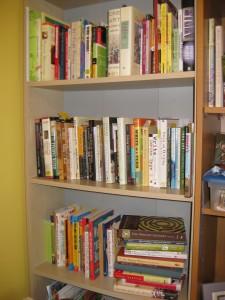


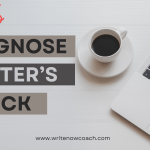
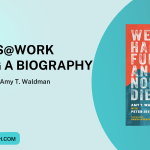
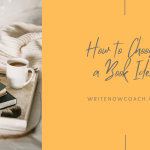
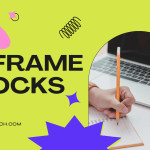
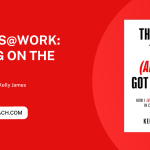







Great list! Story Engineering and Writing the Breakout Novel are two of my favorite writing books. I’m honored to be included in such fearsome company!
We’re honored to have you stop by! 🙂 Thanks, K.M.!
I’m so grateful to have been invited on your blog today, Rochelle! I hope you and your readers find my recommendation useful and that you have a successful NaNoWriMo!
Thank you for such a great blog post. I appreciate it!
Story Engineering is hands down the best book on writing I’ve come across. If your plot is executed well you can have other faults. But if there’s no plot, the book tends to fall apart.
Another book I love is GMC: Goal, Motivation, and Conflict by Debra Dixon. This one is all about character development.
My third pick is Dwight Swain’s book, Techniques of the Selling Writer. This explains in clear language how to write a book in small parts, namely the scene.
I think between those three books, you’ve got everything you need to write, if not a great novel, at least a structurally sound one. 🙂
Ooh, thanks for these book tips. I appreciate it!
It’s important to think about structure, because I’ve read so many books lately that are just ALL over the place.